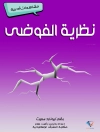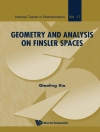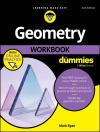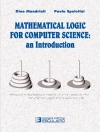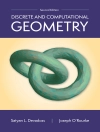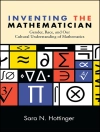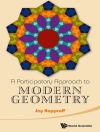This is the third volume of the Handbook of Geometry and Topology of Singularities, a series which aims to provide an accessible account of the state of the art of the subject, its frontiers, and its interactions with other areas of research. This volume consists of ten chapters which provide an in-depth and reader-friendly survey of various important aspects of singularity theory. Some of these complement topics previously explored in volumes I and II, such as, for instance, Zariski’s equisingularity, the interplay between isolated complex surface singularities and 3-manifold theory, stratified Morse theory, constructible sheaves, the topology of the non-critical levels of holomorphic functions, and intersection cohomology. Other chapters bring in new subjects, such as the Thom–Mather theory for maps, characteristic classes for singular varieties, mixed Hodge structures, residues in complex analytic varieties, nearby and vanishing cycles, and more.
Singularities are ubiquitous in mathematics and science in general. Singularity theory interacts energetically with the rest of mathematics, acting as a crucible where different types of mathematical problems interact, surprising connections are born and simple questions lead to ideas which resonate in other parts of the subject, and in other subjects. Authored by world experts, the various contributions deal with both classical material and modern developments, covering a wide range of topics which are linked to each other in fundamental ways.
The book is addressed to graduate students and newcomers to the theory, as well as to specialists who can use it as a guidebook.
Cuprins
1 Maria Aparecida Soares Ruas, Old and new results on density of stable mappings.- 2 David Mond and Juan José Nuño-Ballesteros, Singularities of mappings.- 3 Javier Fernández de Bobadilla, Topological equisingularity: old problems from a new perspective (With an appendix by G. -M. Greuel and G. Pfister on Singular).- 4 András Némethi, Surface singularities, Seiberg–Witten invariants of their links and lattice cohomology.- 5 Jean-Paul Brasselet, Characteristic classes.- 6 Paolo Aluffi, Segre classes and invariants of singular varieties.- 7 Roberto Callejas-Bedregal†, Michelle F. Z. Morgado and José Seade, Milnor number and Chern classes for singular varieties: an Introduction.- 8 Tatsuo Suwa, Residues and hyperfunctions.- 9 Joseph Steenbrink, Mixed Hodge structures applied to singularities.- 10 Laurentiu G. Maxim and Jörg Schürmann, Constructible sheaf complexes in complex geometry and Applications.
Despre autor
José Luis Cisneros-Molina (Ph D, University of Warwick 1999) is a full-time researcher at the Mathematics Institute of the National Autonomous University of Mexico. His research interests are in Algebraic and Differential Topology, Differential Geometry and Singularity Theory, with a particular focus on generalizations of Milnor Fibrations for complex and real analytic maps.
Dũng Tráng Lê (Ph D, University of Paris 1969) is an Emeritus Professor at Aix-Marseille University. Previously he was Professor at the Universities of Paris VII (1975–1999) and Marseille, and was head of Mathematics at the ICTP at Trieste. One of the founders of modern Singularity Theory, he has made numerous contributions to morsification, the topology of complex singularities, polar varieties, carousels, among other topics.
José Seade (DPhil, University of Oxford 1980) is a full-time researcher at the Mathematics Institute of the National Autonomous University of Mexico. His research is in the theory of indices of vector fields and Chern classes for singular varieties, with applications to foliations, and Milnor’s fibration theorem for analytic maps. In 2007 he was awarded the Ferran Sunyer i Ballaguer prize, and he was awarded the 2021 Solomon Lefschetz Medal by the Mathematical Council of the Americas.


